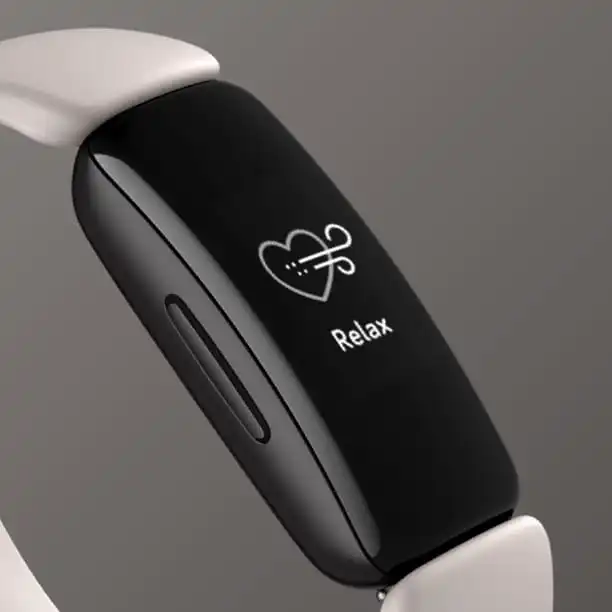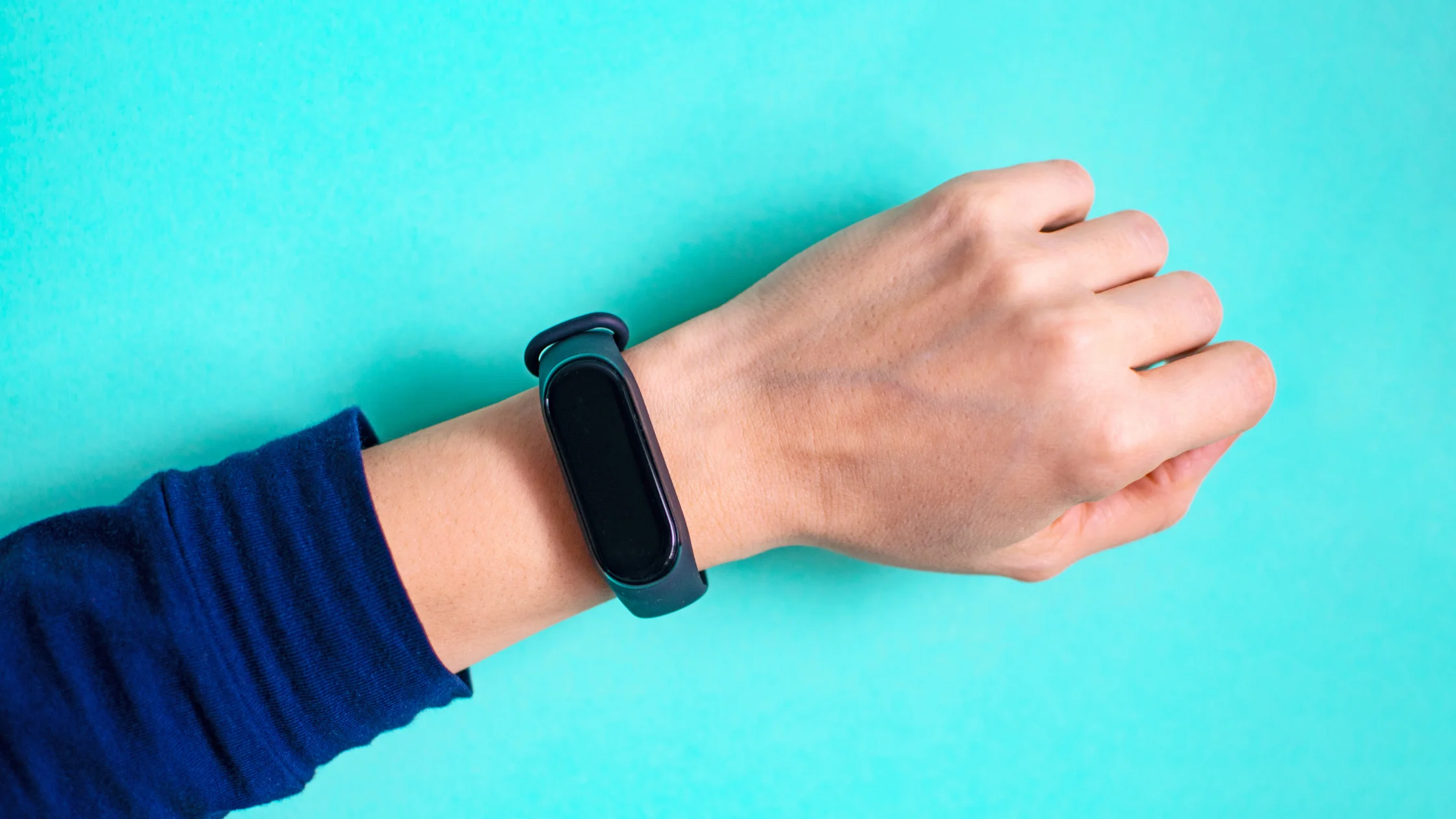In today’s fast-paced world, stress management has become a crucial aspect of maintaining overall health and well-being.
Fitbit, a leading fitness tracker brand, introduced a stress management score feature in its devices, including the Fitbit Sense, to help users monitor and manage their stress levels.
This coming guide aims to provide an in-depth understanding of the Fitbit stress score and how to achieve a good stress score on Fitbit.
The Science Behind Fitbit’s Stress Score
A. The role of heart rate variability (HRV) in stress measurement

Heart rate variability (HRV) is a measure of the variation in time between successive heartbeats.
A higher HRV indicates a healthy autonomic nervous system, while a lower HRV may signal chronic stress, poor sleep, or even an increased risk of heart disease or heart attack.
Fitbit devices utilize heart rate data to measure HRV and help users track stress levels.
B. How Fitbit calculates your stress score
Factors considered in the calculation
Fitbit considers various factors, including HRV, exertion balance, and sleep patterns, to calculate the daily stress management score.
The Electrodermal Activity (EDA) sensor in Fitbit Sense measures EDA responses, which indicate how the body reacts to stress.
The Significance of Sleep and activity data
Sleep quality and sleep duration play a vital role in stress management. A higher sleep score indicates quality sleep, which can lead to a better stress score.
In contrast, poor sleep can result in a lower stress score. Fitbit devices track sleep data to help users monitor their sleep patterns and improve overall well-being.
Interpreting Your Fitbit Stress Score
A. Stress score ranges and their meanings

- Low-stress scores (1-30): A low score indicates that the body shows fewer signs of stress and that the user is handling stress well.
- Moderate stress scores (31-50): A moderate score suggests a balanced stress level, where users may benefit from incorporating stress management techniques into their daily routines.
- High-stress scores (51-70): A high score indicates that the user is experiencing increased stress levels and may need to address the sources of stress.
- Very high-stress scores (71-100): A very high score signifies that the user is experiencing extreme stress levels and should prioritize stress management immediately.
B. Understanding daily fluctuations in stress scores
It is essential to recognize that daily stress scores can fluctuate due to factors such as physical stress, emotional stress, and lifestyle choices. Monitoring daily stress management scores can provide insights into the effectiveness of stress management techniques and help users identify potential triggers.
Factors That Can Impact Your Stress Score
A. Physical factors
- Exercise and physical activity: Regular exercise can reduce stress and improve heart rate variability. However, over-exercising can lead to physical stress, which may negatively impact the stress score.
- Sleep quality and duration: Maintaining a consistent sleep schedule and prioritizing quality sleep can improve stress scores.
- Caffeine and alcohol consumption: High caffeine or alcohol intake can lead to increased stress levels and high blood pressure, affecting the stress score.
B. Emotional factors
- Work-related stress: Long working hours, tight deadlines, and job dissatisfaction can contribute to increased stress levels.
- Relationship and family stress: Conflicts or problems in personal relationships can lead to emotional stress, impacting the stress score.
- Major life events: Life events such as moving, divorce, or losing a job can cause significant stress, affecting the stress score.
V. How to Improve Your Stress Score
A. Effective stress management techniques

- Deep breathing exercises and meditation Deep breathing exercises and meditation: Practicing deep breathing exercises or engaging in meditation sessions can help calm the mind and reduce stress levels, positively impacting the stress score.
- Progressive muscle relaxation: This technique involves tensing and relaxing different muscle groups in a systematic manner, helping alleviate physical signs of stress and promoting relaxation.
- Mindfulness practices: Adopting mindfulness practices, such as focused attention or body scan meditation, can improve mental health and help manage stress more effectively.
B. The role of exercise in stress reduction
- Aerobic activities: Engaging in regular aerobic exercises, such as running, swimming, or cycling, can help reduce stress and promote overall health.
- Strength training: Incorporating strength training into an exercise regime can aid in stress reduction and improve the body’s resilience to stress.
- Yoga and stretching: Practicing yoga or stretching can help relieve muscle tension, improve flexibility, and reduce stress levels.
C. The impact of nutrition and hydration on stress levels
- Foods that help reduce stress: Consuming a healthy diet rich in whole grains, lean protein, fruits, and vegetables can help manage stress levels and support overall well-being.
- Foods to avoid when stressed: Limiting the intake of sugar, caffeine, and processed foods can help prevent stress-induced cravings and promote balanced stress management.
- The importance of staying hydrated: Maintaining proper hydration is essential for optimal body functioning, including stress management.
VI. Monitoring Your Stress Score Over Time

A. Tracking trends and patterns in your stress scores:
Regularly monitoring stress scores using the Fitbit app can help identify patterns and triggers, allowing users to adjust their lifestyle and stress management techniques accordingly.
B. How to set stress management goals:
Establishing achievable stress management goals can help users stay motivated and focused on improving their stress scores.
C. The role of accountability and support systems in stress reduction:
Sharing stress management goals with friends, family, or support groups can encourage accountability and foster a sense of community in the journey toward improved stress management.
VII.Deep breathing exercises and meditation:
Practicing deep breathing exercises or engaging in meditation sessions can help calm the mind and reduce stress levels, positively impacting the stress score.

- Progressive muscle relaxation: This technique involves tensing and relaxing different muscle groups in a systematic manner, helping alleviate physical signs of stress and promoting relaxation.
- Mindfulness practices: Adopting mindfulness practices, such as focused attention or body scan meditation, can improve mental health and help manage stress more effectively.
B. The role of exercise in stress reduction
- Aerobic activities: Engaging in regular aerobic exercises, such as running, swimming, or cycling, can help reduce stress and promote overall health.
- Strength training: Incorporating strength training into an exercise regime can aid in stress reduction and improve the body’s resilience to stress.
- Yoga and stretching: Practicing yoga or stretching can help relieve muscle tension, improve flexibility, and reduce stress levels.
C. The impact of nutrition and hydration on stress levels
- Foods that help reduce stress: Consuming a healthy diet rich in whole grains, lean protein, fruits, and vegetables can help manage stress levels and support overall well-being.
- Foods to avoid when stressed: Limiting the intake of sugar, caffeine, and processed foods can help prevent stress-induced cravings and promote balanced stress management.
- The importance of staying hydrated: Maintaining proper hydration is essential for optimal body functioning, including stress management.
VI. Monitoring Your Stress Score Over Time
A. Tracking trends and patterns in your stress scores:
Regularly monitoring stress scores using the Fitbit app can help identify patterns and triggers, allowing users to adjust their lifestyle and stress management techniques accordingly.
B. How to set stress management goals:
Establishing achievable stress management goals can help users stay motivated and focused on improving their stress scores.
C. The role of accountability and support systems in stress reduction:
Sharing stress management goals with friends, family, or support groups can encourage accountability and foster a sense of community in the journey toward improved stress management.
VII. Conclusion
Understanding and managing stress scores on Fitbit devices can empower users to take control of their stress levels and promote overall well-being. By implementing stress management techniques, maintaining a healthy lifestyle, and monitoring stress scores regularly, users can achieve a good stress score on Fitbit and enhance their mental and physical health.
- Understanding Fitbit stress scores helps users take control of their stress levels and overall well-being.
- Implementing stress management techniques can significantly improve stress scores and mental health.
- Maintaining a healthy lifestyle, including regular exercise, a balanced diet, and proper sleep, positively impacts stress scores.
- Regularly monitoring stress scores using the Fitbit app allows users to identify patterns and triggers, leading to more effective stress management.
- Setting achievable stress management goals and building support systems foster motivation and accountability, contributing to long-term success in stress reduction.
FAQS
What is a high-stress score on Fitbit?
A high-stress score on Fitbit falls within the range of 51-70, indicating that the user is experiencing increased stress levels. A very high-stress score ranges from 71-100, signifying extreme stress levels that require immediate attention and stress management.
Do you want a high or low-stress score on Fitbit?
Ideally, you want a low-stress score on Fitbit. A low-stress score (1-30) indicates that the user is handling stress well and shows fewer signs of stress. A moderate stress score (31-50) suggests a balanced stress level, where users may still benefit from incorporating stress management techniques into their daily routines.
What should your stress score be?
A good stress score on Fitbit should be as low as possible, preferably within the low-stress score range (1-30). This score indicates that the user is effectively managing stress and maintaining a healthy balance. However, it is essential to remember that stress scores can fluctuate, and consistently aiming for improvement and effective stress management is crucial.
Can Fitbit detect anxiety?
Fitbit devices are not specifically designed to detect anxiety or diagnose any medical conditions. However, the stress management score feature can provide insights into stress levels, which may correlate with anxiety. Regularly monitoring stress scores and implementing stress management techniques can help users manage anxiety-related stress. It is essential to consult with a healthcare professional for proper diagnosis and treatment of anxiety or other mental health concerns.


![What Is Water Lock On Fitbit? [Guide 2024]](https://wearurtech.com/wp-content/uploads/2022/10/what-is-water-lock-on-fitbit-450x253.png)



